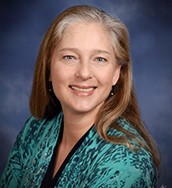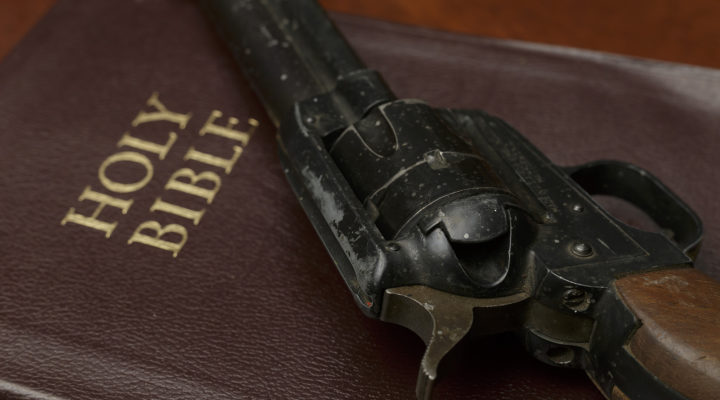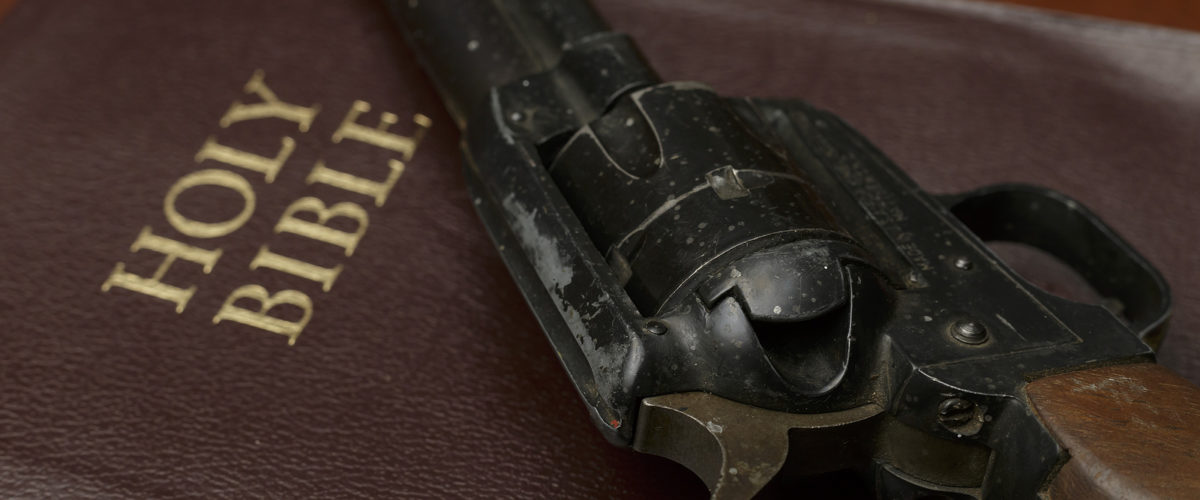The debate over gun ownership usually revolves around Second Amendment rights and the tension between personal and public safety. But a new study suggests that concern about supernatural evil is an additional motivating factor for some religious Americans who own firearms.

Margaret Kelley
“The Protestant Ethic and the Spirit of Gun Ownership,” published recently in the Journal for the Scientific Study of Religion, found that beliefs in Satan, demons and the Apocalypse can foster in many a sacred obligation to defend themselves, loved ones and communities from evil.
The study comes during a year of record gun sales in the United States, sparked by the coronavirus pandemic and protests over racial injustice. For many of those buyers, the motivation is divinely inspired.
“For some people it is a literal fight with Satan, who can be embodied on earth in the form of people you have to fend off,” said Margaret Kelley, a sociologist and associate professor of American studies at the University of Kansas and co-author of the ethnographic study on guns and religion. “They see Satan as actively going around making trouble.”
Sometimes that trouble shows up in the form of tragic situations such as mass shootings. “It’s a way for people to explain what’s going on in the world,” the professor said.
Kelley and co-author Abigail Vegter, a KU doctoral student, conducted 18 in-depth interviews for the study, which is part of a wider book project Kelley is writing about women and gun ownership. They set out in the smaller study to discern the religious and cultural factors influencing American attitudes toward guns and gun violence.
Their subjects were men and women of faith from mostly Protestant backgrounds, including those who identified as Southern Baptists, white evangelicals, Presbyterians and non-denominational Christians. There also were Catholics, Latter-day Saints, Buddhists and Wiccan subjects. All were gun owners.
The study uncovered a distinct connection between belief in some form of supernatural evil and legal concepts such as justifiable homicide. Participants identified resultant duties to protect, to be diligent and to defend.
The surprising finding, Kelley said, was an equally strong belief in firearm safety among those interviewed.
The surprising finding, Kelley said, was an equally strong belief in firearm safety among those interviewed. “That bundle of religious duties and ideas and beliefs about guns drives some people to be diligent with their guns.”
Participants said their religious obligation to own guns comes with a serious responsibility to avoid accidentally harming themselves or others. Hence, they are often proponents of seeking professional training and regular shooting practice to build proficiency.
“These are people who are not carefree about their gun use,” Kelley said. “They believe if you have a gun you should be trained and do your best not to contribute to greater evil by mishandling it.”
Some differences in attitudes showed between faith groups. White evangelicals tended to be more stridently opposed to gun control policies, and Catholics tended to show reluctance to using firearms. But there are always exceptions.
“Almost all religions, including Catholicism, have ways you can make peace with carrying a gun,” she said.
“Almost all religions, including Catholicism, have ways you can make peace with carrying a gun.”
And the study found differing degrees of perceptions of supernatural evil. “While not all participants made the connection between their religious identity and gun ownership, participants often cited God’s desire for them to serve as a protector, even calling it a part of their Christian duty,” Kelley and Vegter wrote.
Conflict about the possibility of having to use a gun also showed as a common factor in the study, Kelley added. “This is a big moral challenge to think about and to reconcile, whether or not you’re religious. People really wrestled with the use issues.”
But the study concludes that there is some degree of certainty that the need for guns is real — and biblical.
“Guns were cited not only as a method of protection from evil in the day-to-day, but also from Armageddon and the end of the world, which might take the form of a civil or world war,” the article noted.
And such concerns are likely spiking given national stress over the pandemic, the economy and social unrest, she added. “There is definitely a trend of more people being interested in what it means to be armed.”


